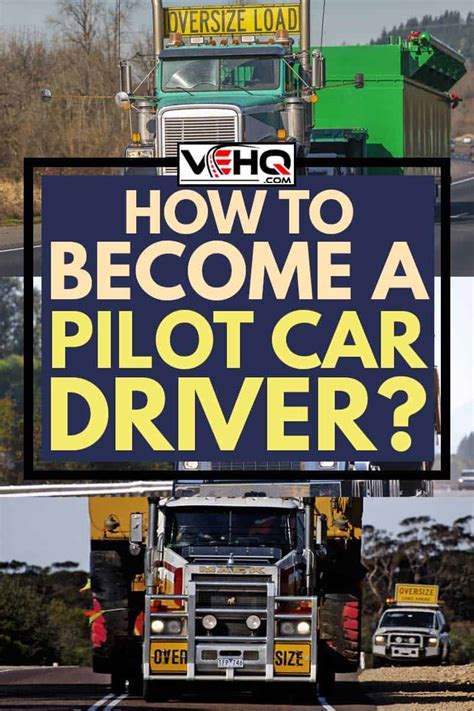Pilot Car Driving: A Career With Purpose
Pilot car driving, often overlooked, offers a unique blend of responsibility, skill, and purpose. It's a career path that's not for everyone, demanding focus, patience, and a strong sense of safety awareness. But for those who thrive in challenging environments and appreciate making a tangible difference, pilot car driving can be incredibly rewarding. This article delves into this often-unsung profession, exploring its intricacies, requirements, and the profound impact pilot car drivers have on ensuring safe and efficient transportation of oversized and overweight loads.
What Does a Pilot Car Driver Do?
Pilot car drivers act as escorts for oversized or overweight vehicles, guiding them safely through challenging routes. These loads, often exceeding legal size and weight limits, require specialized handling and careful navigation to prevent accidents and infrastructure damage. The pilot car driver's primary responsibility is to ensure the safe passage of the escorted vehicle, communicating with the driver of the oversized load, navigating complex routes, and managing potential hazards along the way. This involves detailed route planning, adhering to strict regulations, and constant vigilance.
Why Choose a Career in Pilot Car Driving?
A career as a pilot car driver isn't just about driving; it's about contributing to a safe and efficient transportation system. This career path provides several compelling reasons to consider it:
- High Demand: The need for skilled pilot car drivers continues to grow, due to increasing infrastructure projects and the transportation of large equipment.
- Making a Difference: You're directly involved in ensuring public safety and preventing potential accidents involving oversized loads.
- Variety and Challenge: Each route and load present unique challenges, keeping the job interesting and engaging.
- Good Earning Potential: Depending on location and experience, pilot car drivers can earn a competitive salary.
- Flexibility: Some companies offer various shift options, potentially providing a flexible work schedule.
What are the Requirements to Become a Pilot Car Driver?
While specific requirements vary by state and company, several common factors apply:
- Valid Commercial Driver's License (CDL): A CDL is almost always a prerequisite. This requires passing a written and driving test.
- Clean Driving Record: A spotless driving history is crucial for securing a position.
- Experience: While not always required, previous driving experience, especially with large vehicles, is highly beneficial.
- Specialized Training: Many companies provide specialized training for pilot car driving techniques, route planning, and communication protocols.
- Background Check: A thorough background check is standard procedure.
What are the Risks and Challenges of Pilot Car Driving?
This profession comes with its share of challenges:
- Long Hours: Some routes can be extensive, demanding long working hours.
- Irregular Schedules: The nature of the job often leads to irregular working schedules.
- Weather Conditions: Pilot car drivers must contend with various weather conditions, sometimes impacting visibility and road conditions.
- Dealing with Traffic: Navigating busy traffic with an oversized load requires patience and exceptional driving skills.
What are the Different Types of Pilot Cars?
While the core function remains the same, pilot cars can vary in their specifications:
- Standard Pilot Cars: These are typically equipped with flashing lights and signage to alert other drivers.
- Specialized Pilot Cars: Certain specialized loads might require pilot cars equipped with additional safety features or communication systems.
How Do I Find Pilot Car Driving Jobs?
Finding pilot car driving jobs usually involves:
- Online Job Boards: Search for relevant keywords like "pilot car driver," "oversize load escort," or "heavy haul escort."
- Networking: Connecting with individuals in the trucking and transportation industry can lead to valuable opportunities.
- Directly Contacting Companies: Research companies that specialize in oversized load transportation and inquire about job openings.
What is the Future of Pilot Car Driving?
With ongoing infrastructure projects and the continued transport of large equipment, the demand for skilled pilot car drivers is projected to remain strong. The integration of technology, such as advanced GPS systems and communication devices, will likely continue to improve efficiency and safety within the industry.
Pilot car driving offers a career path that blends skill, responsibility, and a profound sense of purpose. While it’s demanding, it’s also a career that contributes directly to public safety and efficient transportation. For those seeking a challenging and meaningful profession, pilot car driving deserves serious consideration.

